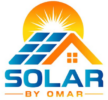Can You Get Free Solar Panels in New Jersey? The Truth Revealed
New Jersey’s high electricity costs—$0.20 per kWh, above the national average—make solar appealing. Ads for “free solar panels” are everywhere, but are they truly free? Let’s cut through the noise and examine the reality of free solar panels in New Jersey, focusing on Power Purchase Agreements (PPAs), solar leases, and state programs. This guide will help you decide if these options suit your home and wallet.
Are Solar Panels Really Free in New Jersey?
No, solar panels aren’t free in the traditional sense. “Free” refers to financing options like PPAs or solar leases, where you pay no upfront costs for installation. Instead, you pay the solar company for the energy produced or a fixed monthly fee. The solar company owns the system, claiming incentives like the 30% federal tax credit and New Jersey’s Successor Solar Incentive (SuSI) payments.
Alternatively, programs like the NJ Sun Solar Program offer free installations for low-income households, but eligibility is strict. Community Solar Programs also provide access to solar benefits without rooftop panels, targeting underserved residents.
Solar Leases vs. PPAs: What’s the Difference?
- Solar Lease: You pay a fixed monthly fee, regardless of energy output. Contracts typically span 10–25 years.
- PPA: You pay per kilowatt-hour (kWh) produced, often at a rate lower than your utility’s. Bills vary based on panel performance, with 20–25-year terms.
Both options lower your electric bill through net metering, but you don’t own the system, missing out on tax credits and SuSI payments ($90 per SREC-II for 15 years). Escalator clauses (1.5–3% annual increases) can also raise costs over time.
Pros and Cons of “Free” Solar Panels
Pros:
- No upfront costs.
- Net metering reduces utility bills.
- Solar company handles maintenance.
- Flexible end-of-contract options (keep or remove panels).
Cons:
- Lower long-term savings compared to buying outright.
- Monthly payments may rise with escalator clauses.
- Can complicate home sales, as agreements transfer to buyers.
- You miss out on incentives like tax credits and SuSI.
Why Are PPAs and Leases Popular in New Jersey?
New Jersey leads in third-party-owned systems, with 83% of residential solar installations from 2020–2024 using leases or PPAs. Why? Solar companies profit by claiming incentives and collecting monthly payments. The state’s high electricity rates and strong SuSI program (worth over $11,000 for a typical system) make these deals attractive for installers and accessible for homeowners who can’t pay upfront.
NJ Sun and Community Solar Programs
- NJ Sun Solar Program: Run by the New Jersey Board of Public Utilities, it provides free solar installations for qualifying low-income households. Apply through the NJ Clean Energy Program website, but income limits apply.
- Community Solar: Launched in 2019, this program lets residents subscribe to off-site solar projects, reducing bills without rooftop panels. It’s ideal for renters or homes unsuitable for solar. Learn more at NJ’s Community Solar page.
How Much Can You Save?
Savings depend on your financing choice:
- Cash Purchase: Highest savings, no monthly payments, and you claim all incentives. An 8-kW system could save $30,000–$40,000 over 25 years.
- Solar Loan: Balances upfront affordability with ownership benefits. Savings are lower than cash but higher than leases/PPAs.
- Lease/PPA: Immediate bill reductions, but long-term savings are limited due to monthly payments and missed incentives.
For example, an 8-kW system generating 8 MWh annually earns $730 yearly via SuSI if you own it, plus federal tax credits. With a lease or PPA, the solar company keeps these benefits.
Is “Free” Solar Worth It in New Jersey?
If you can afford it, buying solar panels outright or via a loan maximizes savings, especially with New Jersey’s incentives. However, PPAs or leases are solid options if:
- You don’t qualify for loans or lack cash.
- You don’t pay federal taxes, making tax credits irrelevant.
- Local loan terms are less competitive than lease/PPA rates.
Community Solar or NJ Sun are better for low-income households or non-homeowners. Compare quotes from multiple installers to weigh cash, loan, and lease/PPA options.
FAQ: Free Solar Panels in New Jersey
Can the government provide free solar panels?
The NJ Sun Solar Program offers free installations for low-income residents, but no broad government program exists for all homeowners.
How do free solar panels save money?
Leases/PPAs lower utility bills via net metering, but savings are less than owning due to monthly payments.
What incentives are available?
New Jersey offers SuSI ($90 per SREC-II), sales/property tax exemptions, and the 30% federal tax credit (for owners only).
Are solar panels worth it?
Yes, high electricity rates and strong incentives make solar a smart investment, especially if you own the system. Learn more at U.S. Department of Energy’s solar guide.
Take the Next Step
Curious about solar savings for your home? Get a free solar proposal in 24 hours or less to explore your options. Use a solar calculator to estimate costs and connect with trusted New Jersey installers. Get quotes for cash purchases, loans, leases, or PPAs to find the best fit. For low-income programs, check the NJ Clean Energy Program website. Act now to cut your electric bill and go green.
Omar is the solar expert behind Solar by Omar, helping South Jersey homeowners cut Atlantic City Electric bills with no-cost solar solutions. With years of experience in solar installations, he’s dedicated to saving you $55,000+ over 25 years. Get a free solar quote today.
